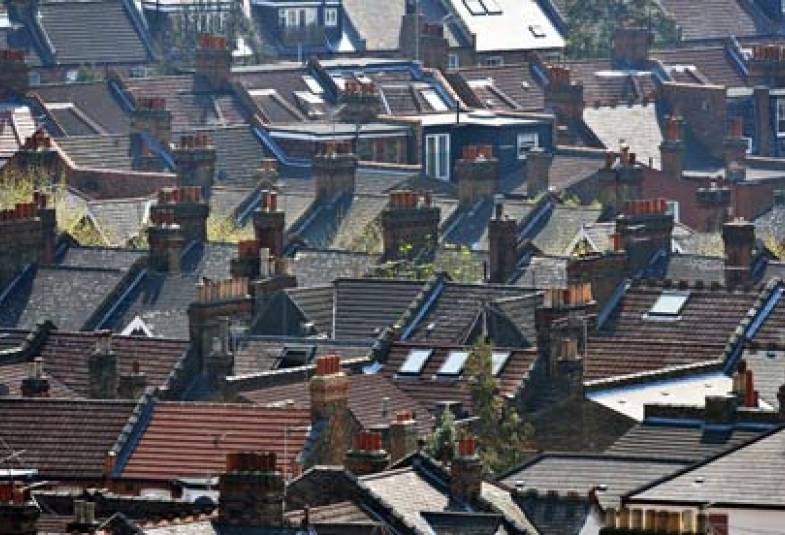This blog is written by a member of the independent Commission. These views do not necessarily represent the views of the Archbishops' or the Church of England.

Coronavirus is exposing the realities of the housing crisis, and the inequalities of a housing system that has been broken for years. Before the pandemic, Newham was at the sharp end of the housing crisis, with the highest rate of overcrowding in the country; the highest rate of homelessness; and the highest number of families in temporary accommodation – more than in the whole of the North of England. For more details, check out our previous blog.
Now, government figures have shown Newham has had the highest Covid-19 age-adjusted mortality rate in the country. Having already borne the brunt of years of failure to face up to housing policy challenges, the borough is now disproportionately affected by the pandemic.
Public health experts say that poor housing is one of the reasons for this. Overcrowding, and conditions where self-isolation is impossible, spread coronavirus. And poor housing exacerbates respiratory problems that increase the risk that coronavirus will be fatal.
The lockdown has caused challenges for many families. It is hard enough when you have a safe and spacious home, but it’s near unbearable for many in Newham in dire housing situations. This was especially true early on, when the restrictions allowed people to go out only for an hour of exercise and a trip for essentials each day. This was very hard for families whose accommodation is severely overcrowded. Several children have to sleep, do homework and play, all in one room, without the respite of schools, parks, or libraries. This places an immense mental strain on their parents.
We know that housing is a key social determinant of health – this is even more true when you are in your home all the time. It is particularly concerning for those in Newham with serious damp or mould, or where their property has other category hazards. Stephen’s team have spoken to a number of people concerned about that chronic mould in their property could be affecting their child’s asthma, or that it is exacerbating their own breathing difficulties, which might have complications for coronavirus risk.
Mr O is a bus driver and is working every day. Tragically, he has already lost two colleagues at work to coronavirus.
He lives with his wife and five children (all age under ten) in their one-bedroom council flat. Mr O and his wife sleep in the living room, while the children all share a bed. The children keep waking up with severe nosebleeds and bruising, from bumping into each other in the night. Teachers have previously raised concerns that the children fall asleep in class, while speech and therapy experts agree that, in the case of one of his daughters, part of the reason she is behind in her language development is due to a lack of proper sleep. Without the same respite of school or (until recently) parks, this situation has caused much strain for the family.
Mr O is understandably terrified that, if he contracts coronavirus whilst working, he will have no option at all to self-isolate, endangering his family.
For private tenants in Newham, as with many London boroughs, there is a huge disparity between earnings and rents, and high levels of financial insecurity. Half of Newham households are on low incomes after taking housing costs into account, and two-thirds of Newham’s children live in poverty. The situation was already unstable, but now many have seriously reduced income or have been made redundant and unable to pay their rent. When the suspension on evictions ends in late June, many fear eviction.
Newham also has over 5000 families in temporary accommodation. Temporary accommodation is not subject to the same standards as other accommodation; so often several families share kitchens and bathrooms, making self-isolation very difficult. Because of the high cost of private rents in London, families are often placed by councils a very long way away from their support network – incredibly challenging if they become ill.
Many of these people in temporary accommodation also have ‘No Recourse to Public Funds’ (NRPF), which around a million people in the UK have attached to their immigration status. This means they are unable to access the social security safety net, and most housing support (with the exception of the support available under Section 17 of the Children’s Act.) Newham Council has experienced a 300% increase in requests for support for those with NRPF, and initial indications show that inadequate accommodation is one of the biggest challenges those with NRPF are facing during the pandemic.
Ms S is housed by a different London local authority in temporary accommodation in Newham. She lives there with her young son. The accommodation (which includes a kitchen and bathroom) is shared with a number of other families.
A rota has been set up so each family can only use the kitchen for cooking a few hot meals a week. Social distancing is almost impossible – and her son is very young, so does not understand a pandemic. Ms S is struggling without the respite of parks or playgroups. Being stuck in one room is severely affecting Ms S’s mental health, as well as being distressing for her son.
Reflecting on the distressing situations experienced by many of his constituents, Stephen Timms MP says that the housing crisis has been thrown into sharp relief by the coronavirus:
'Many in Newham with already challenging housing situations are now suffering serious hardship, highlighting the inequities in a housing system that has been broken for years. Short-term measures are clearly needed – especially to protect private renters. But COVID-19 also offers us the chance to reimagine policy in the future, and rebuild a housing system that works for everyone. As we come out of the crisis, I hope a large part of recovery will involve building much more social housing.’